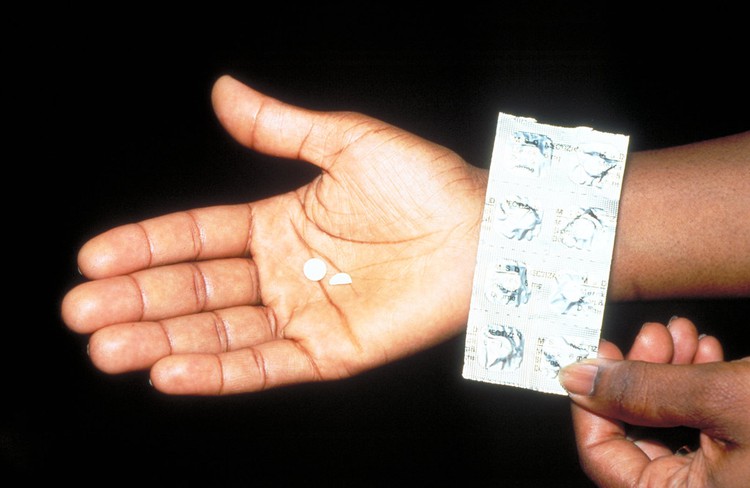Covid-19 and ivermectin: SAHPRA reaches settlement with Afriforum
Doctors can apply to use the drug under section 21 of the Medicines Act
Many doctors GroundUp has spoken to are sceptical of using ivermectin before a clinical trial shows whether it is effective. Photo: “Distribution of ivermectin.” by Community Eye Health is licensed under CC BY-NC 2.0
A court challenge aimed at legalising the use of ivermectin in the treatment of Covid-19 — and giving doctors unfettered discretion on how to administer it — has been settled.
The North Gauteng High court application was launched by GP Dr George Coetzee, two of his patients, and Afriforum “in the public interest”. They claimed the drug — not registered in South Africa for human use — “may well be the wonder drug that can save the nation”.
And they wanted a judge to force the South Africa Health Product Regulatory Authority (SAHPRA) to declare it a “safe drug”, subject to it being properly administered by a medical practitioner.
SAHPRA did not file opposing papers. Instead, on Wednesday last week, it said it would approve individual applications, in terms of its section 21 process (named after section 21 of the Medicines Act), for its use “on compassionate grounds”.
In an accompanying press statement, SAHPRA wrote that it has been reviewing new evidence on the safety and efficacy of ivermectin for the treatment and prevention of Covid-19. “To date there is insufficient evidence for or against the use of ivermectin in the prevention or treatment of Covid-19. Furthermore, no regulatory authority with which SAHPRA is aligned (such as the US FDA, EMA or MHRA) has recommended the use of ivermectin in the management of Covid-19.”
While lawyers for the applicants told GroundUp SAHPRA’s willingness to use the section 21 process was a “step in the right direction”, it said it would persist with the urgent court application “to ensure that the section 21 process is expedited and streamlined”.
“Our concern is the section 21 process is still extremely defective and administratively burdensome.”
Now the parties have filed a draft order, likely to be made an order of court on Tuesday.
The proposed order refers to SAHPRA’s “Ivermectin Controlled Compassionate Use Programme Guidelines”.
It states that in terms of this programme ivermectin will be made available, subject to section 21 applications, and that anyone can access it via this process.
Medical practitioners may apply for access and where they believe urgent access is required, and ivermectin is available, treatment may be initiated at the same time as the application is made.
In terms of the process, medical practitioners will have to report back to SAHPRA on any adverse side-effects which, SAHPRA says, will be used to collect much needed data on the performance of the drug, pending proper clinical trials.
The applicants were also seeking a declaratory order that medical doctors and pharmacists be allowed to compound medicines, particularly those containing ivermectin, in a quantity required for treatment of their patients.
The debate on this revolves around interpretations of section 14 (4) of the Medicines Act and whether or not “has been registered” means “is now registered” or “has been registered at any time”. (There is some confusion over the past registration status of ivermectin.)
This issue will be held over for determination by a court at a future date after more papers are filed during the course of this month.
But many doctors GroundUp has spoken to are sceptical of using ivermectin before a clinical trial shows whether it is effective. There is no consensus on what dose, form, duration or stage of illness the drug can or should be taken. In the Daily Maverick on Friday Dr Aslam Dasoo wrote: “The authority, designed for a normal functional democracy, was unable to withstand abnormal pressure from lobby groups and its decision shows up the lack of protection from a strong government.”
Support independent journalism
Donate using Payfast

Next: “We are desperate”: Covid-19 grant beneficiaries still hope for a reprieve
Previous: Doris Mathebula walks 12km a day to fetch water because the municipal boreholes don’t work
© 2021 GroundUp. This article is licensed under a Creative Commons Attribution-NoDerivatives 4.0 International License.
You may republish this article, so long as you credit the authors and GroundUp, and do not change the text. Please include a link back to the original article.

